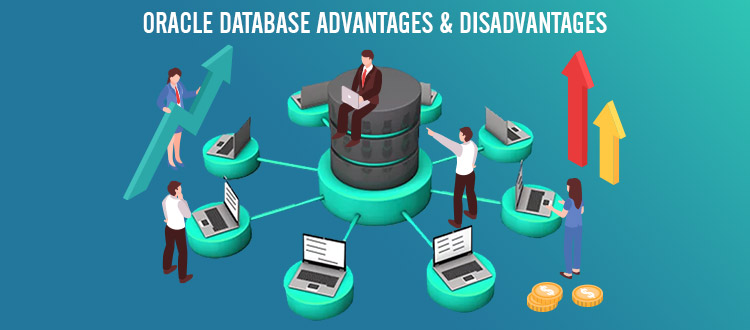What are Some of the Main Benefits of Oracle Database Management Software?
There comes a time when medium to large businesses need to transform their existing in-house operations in order to cater to an evolving digital landscape. This is a perfectly natural stage of evolution and if carried out effectively, success will certainly follow. While many articles focus upon the advantages associated with e-commerce platforms, it is important to remember that database management is equally critical to address.
However, collating and interpreting vast amounts of data is no easy task. IT teams will often be stretched to their limits and as a result, other core competencies such as sales and client relations can suffer. This is why many businesses are choosing to work with Oracle database management. Let us examine some notable features of this product in order to appreciate what is in store.
The Ability to Work in Tandem with Third-Party SLM Systems
Oracle is quite unique in the fact that it can be integrated with other software platforms. This is ideal when referring to a fast-paced business environment when any downtime could otherwise lead to profound issues. One notable example can be seen in software license management.
As companies are rightfully concerned with compliance and legal issues, it is only logical that a centralised means to monitor software assets should be adopted. For instance, the license management software offered on this website ensures that organisations are kept abreast of any changes as they may occur. This is also an excellent way to identify which packages may be redundant or entirely outdated. Oracle is therefore an excellent option in regards to its hands-on nature.
Offering A Mobile-Responsive Edge
More than half of all Internet users are now employing smartphones and tablets to access the online community. This is why Oracle has been optimised to recognise well over 20 networking protocols. Integration is therefore no longer a concern. Another windfall here involves the number of employees who may be telecommuting on a regular basis. Authorised personnel can access important data even while out and about. Companies will therefore remain one step ahead of the digital curve. This mobile-responsive design is already beginning to transform how businesses conduct their operations.
Second-to-None Levels of Customer Satisfaction and Flexibility
Many professionals will argue that Oracle is the leader in terms of client satisfaction. This is partially due to the presence of knowledgeable customer service representatives who make it a point to become familiar with the end user. However, another metric should be highlighted. Oracle is known as a “headless” database management solution. In other words, it is both forward- and backward-compatible. This signifies that changes can be made on the backend without needing to overhaul the entire system.
Finally, Oracle appreciates that the learning curve associated with database management can be steep on occasion. This is why updates include the most popular features that were associated with older iterations. Employee training and onboarding will therefore take much less time; enabling a business to quickly return to its ongoing in-house operations.
High-Level Functionality
Were you aware that ten of the largest banks in the world have chosen to use Oracle as their database management software? This arises from the agile nature of the software itself. Oracle can be easily integrated into most systems and above all, it is capable of storing truly massive amounts of information.
As the online business community becomes even more competitive, it is likely that Oracle will represent one of the most logical database management solutions.



